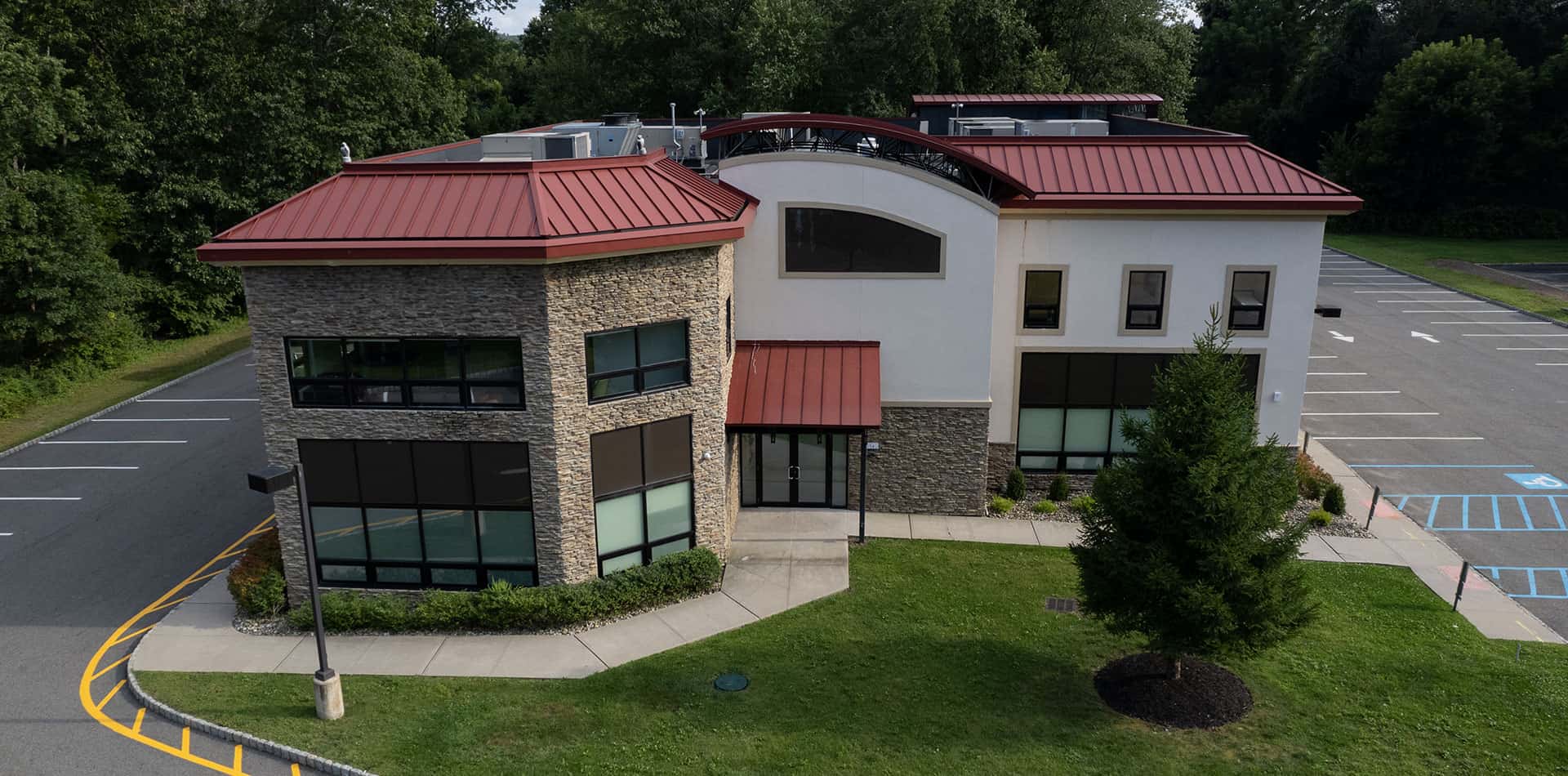How Do I Get Help?
We will give you the support and guidance you need to get started on the road of long-term recovery.
Teens begin using substances for a variety of reasons, many of which involve self-medication, peer pressure, and early exposure to drugs or alcohol. If you are a teen looking for help with substance use, you are encouraged to reach out to a trusted adult, such as a parent, teacher, or counselor, who can provide you with guidance and support.
Guardian Recovery is dedicated to empowering adolescents on their journey towards recovery and a brighter future. Our specialized adolescent program offers a compassionate, safe, and nurturing environment where young people can bravely address substance use issues. Understanding the unique challenges faced by adolescents, our team of experienced professionals provides personalized care, blending evidence-based treatments with holistic approaches. We encourage all adolescents grappling with substance use to reach out, take the first step towards healing, and rediscover the joy of a life free from addiction. At Guardian Recovery, we believe in every individual’s ability to overcome challenges and we’re here to support you every step of the way.
How Do I Know If I Have a Drug or Alcohol Use Issue?
If you suspect you may have a problem using drugs or alcohol, several tell-tale signs may serve as evidence. These include having difficulty controlling your substance use, experiencing withdrawal symptoms and cravings when you try to quit, and neglecting responsibilities or relationships in favor of obtaining, using, or recovering from substances.
If these factors are true in your case, consider talking to an adult who can help you get assessed for a substance use disorder and begin seeking treatment right away.
Symptoms You May Feel from Drug Use or Excessive Drinking Include:
- Euphoria or excessive happiness.
- Anxiety or panic attacks.
- Depression.
- Paranoia, delusions, or hallucinations.
- Impaired coordination.
- Loss of memory (blackouts).
- Concentration difficulties.
- Mood swings and irritability.
- Drug cravings.
- Nausea and vomiting.
- Shakiness.
- Elevated heart rate.
- Loss of appetite.
- Sweating, flushing, and chills.
- Excessive sleepiness.
- Insomnia.
These do not include all of the effects you may experience, and they can vary based on the substance(s) you used, the amount you consumed, and your factors.
Get Local Help
Helpful, Recovery
Resources
- Our Approach
- Recovery Tips
- Frequently Asked Questions
- Insurance Check
- Ask a Question
What You May Be Experiencing in School or at Home
You may have noticed a decline in academic performance at school, possibly due to memory or concentration difficulties. Related issues can include frequent absences or tardiness. At home, your relationships may have deteriorated, and you may be neglecting your family and responsibilities in favor of using drugs or alcohol and spending time with peers who also engage in substance use.
Specific Issues May Include:
- A need for secrecy and isolation.
- Severe anxiety or depression.
- Changes in social circles and activities.
- Neglect of obligations and duties.
- Reduced motivation.
- Increased risk-taking behaviors and reduced inhibitions.
- Poor judgment and decision-making.
Start Healing Today!
Choose recovery and take control of your life, it’s the path to a brighter future filled with health, happiness, and fulfillment.
Can I Stop Drinking or Using Substances on My Own?
In general, health providers do not advise quitting drug or alcohol use (withdrawing) on your own without professional help. There are several reasons for this, but most importantly, withdrawal can be life-threatening in some cases without clinical care. This is especially true for alcohol and benzodiazepines such as Xanax, but it can likewise be a significant risk in other instances. (1)
Withdrawal can also lead to severe depression and suicidal thoughts, and medical supervision is typically required to help young people navigate through this dangerous situation safely. If you or someone you know is having thoughts of suicide, call 911 or call/text 988 to reach the National Suicide Prevention Lifeline. (2)
Finally, symptoms of withdrawal can be both physically and emotionally demanding and are a common obstacle to overcome to achieve sobriety. Medical detox programs can help you manage these effects and ensure you are safe and comfortable during this critical phase of recovery.
Complimentary Insurance Check
Find Out Today!
"*" indicates required fields
Why Quitting Drug Use or Drinking Can Be Difficult
Quitting substance use can be very challenging for a variety of physical, mental, and social reasons. If quitting were easy, then maybe specialized treatment wouldn’t be necessary—but this is not the case.
Factors That Make Quitting Difficult Include:
- Physical dependence, or a chemical reliance on a substance that leads to withdrawal symptoms that are challenging to manage during the recovery process.
- Psychological dependence, or the mental and emotional reliance on using a substance as a coping mechanism or self-medication.
- Potentially powerful drug or alcohol cravings, an effect of dependence and abruptly quitting substance use.
- Social and environmental factors, such as peer pressure and easy access to drugs or alcohol.
- Mental health issues, such as depression and anxiety, which contribute to the need to use substances as a form of self-medication, especially when unaddressed medically.

Our Locations
Our Facilities & Teams Transform Lives
Changing lives by providing comprehensive support and rehabilitation, empowering individuals to overcome addiction and regain control of their health and well-being.
Is There Something Wrong With Me?
It’s not uncommon for young people who struggle with substance use to question whether there is something wrong with them and, if so, what that might be. However, it’s important to understand that addiction is a complex condition rooted in a variety of different physical, mental, and social factors.
Unfortunately, you cannot control many of these factors, and those that are manageable may not be obvious. By seeking substance use treatment, you can gain insight from professionals who can help you develop strategies to overcome the challenges that prevent you from recovering.
You Are Not Alone
If you struggle with substance use or mental health issues, remember that you are not alone. Many other teens and adults alike have faced similar challenges and have overcome them with the right support and resources.
In addition to receiving professional treatment, surrounding yourself with a strong support system, including family, friends, or support groups, can greatly increase your chances of achieving long-lasting sobriety.
How Do I Tell My Parents I May Need Help?
Telling your parents or guardians you might need help can be difficult and a little scary, but remember they love you and are there to provide you with support and understanding. Choose a time when they are approachable, and express yourself honestly and openly when voicing your concerns.
Although not required, it might be useful to learn more in advance about treatment programs so you can offer them potential solutions and show that you are serious about seeking help.
Who Can I Talk to for Help?
In addition to confiding in a loved one, teacher, or school counselor, you can call helplines and take advantage of online resources that provide anonymous guidance and support. (3) You are also encouraged to contact a treatment center, such as Guardian Recovery, that offers programs specifically designed for teens and adolescents and tailored to their needs and goals.
READY TO MAKE A CHANGE?
Your Next Steps
What Does Recovering From Substance Use Look Like for Teens?
Recovering from substance use is a unique journey for each person, including teens. Treatment approaches vary depending on the nature and severity of substance use as well as personal circumstances. However, most individualized programs include a variety of therapies, support groups, enjoyable activities, and, in some cases, medication.
Regardless of your situation, the overarching goal is to provide you with the tools and resources you need to maintain sobriety, prevent relapse, and sustain long-lasting recovery.
During treatment, we offer our teens academic programs, career guidance, and training in the life skills they need to be successful when they return to the real world. Sober living options are also available if they are suitable, where you can reside in a home-like environment with peers who can provide support and hold you accountable for your sobriety.
How Quitting Substance Use Can Be Life Changing
Overcoming substance use can have a tremendous impact on a teen’s life. It can improve mental and physical health, enhance academic performance, and strengthen relationships with loved ones. Getting sober can also provide opportunities for individual and spiritual growth, and help with motivation and the pursuit of long-term goals.
By overcoming drug and alcohol addiction early in life, you can take control of your own personal journey and foster a healthier, more fulfilling future for yourself.
Contact Guardian Recovery Today
If you are a teen or their loved one seeking substance use treatment on their behalf, we encourage you to contact us today. We offer teen and adolescent recovery programs designed for young people and the unique social, emotional, and academic challenges they face every day. For a free, no-obligation insurance benefits check and to learn more about our streamlined admissions process, reach out to us and take the first step on your journey to happiness, wellness, and long-term recovery.
Reviewed professionally for accuracy by:

Ryan Soave
L.M.H.C.
Ryan Soave brings deep experience as a Licensed Mental Health Counselor, certified trauma therapist, program developer, and research consultant for Huberman Lab at Stanford University Department of Neurobiology. Post-graduation from Wake Forest University, Ryan quickly discovered his acumen for the business world. After almost a decade of successful entrepreneurship and world traveling, he encountered a wave of personal and spiritual challenges; he felt a calling for something more. Ryan returned to school and completed his Master’s Degree in Mental Health Counseling. When he started working with those suffering from addiction and PTSD, he found his passion. He has never looked back.



